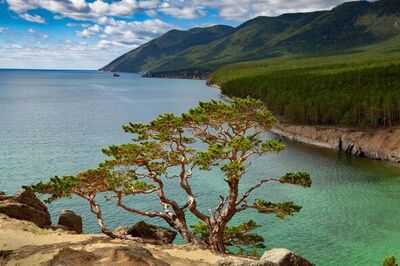
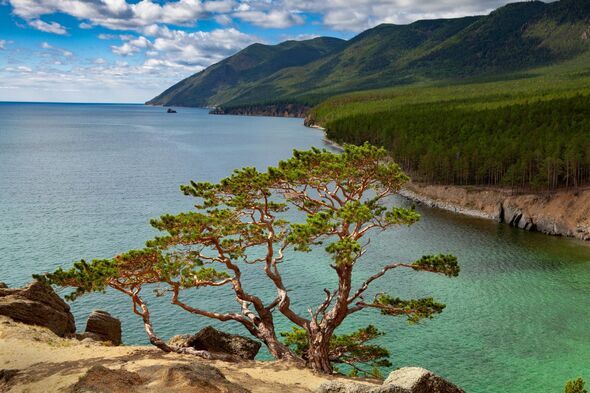
Once a remote secret of , Lake Baikal has blossomed into a top tourism destination, drawing millions of visitors annually. People visit for everything from leisurely cruises to adrenaline-inducing adventures on its icy expanses in winter. Along its shores, and cultural sites - steeped in local legend and shamanic traditions invite visitors to experience the mystique of this immense body of water.
Located in southern Siberia, Baikal is the world's largest freshwater lake by volume, a natural wonder holding approximately 23,600km³ of water. The five Great Lakes in North America contain about 22,700km³ of water, the largest of them, Lake Superior, contributing roughly 12,100km³.
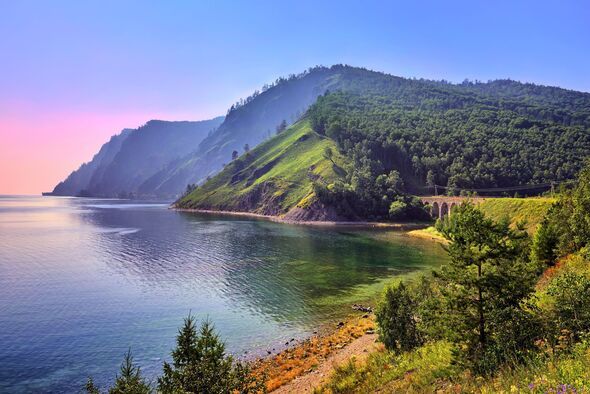
Meanwhile, Lake Michigan is about 4,900km³, Lake Huron is around 3,450km³, Lake Ontario is nearly 1,640km³ and Erie is just 484km³.
This Siberian gem does more than outsize the mightiest North American lakes combined but is also slightly larger than Belgium.
But there is more to Baikal than numbers. Carved out by a continental rift and estimated to be 25-30 million years old, Lake Baikal is the deepest lake on Earth, plunging to a maximum depth of 1,642m.
According to UNESCO, its extraordinary volume bears huge significance: "It contains 20% of the world's total unfrozen freshwater reserve.
"Known as the 'Galapagos of Russia', its age and isolation have produced one of the world's richest and most unusual freshwater faunas, which is of exceptional value to evolutionary science."
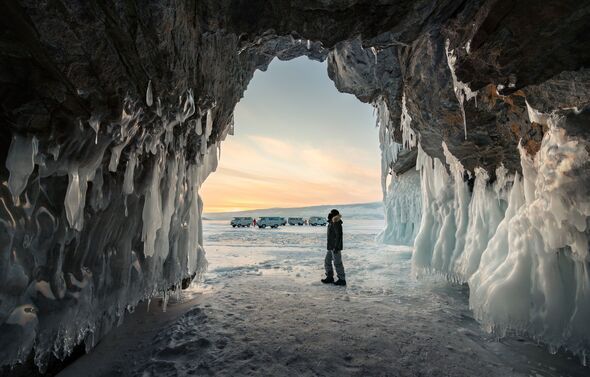
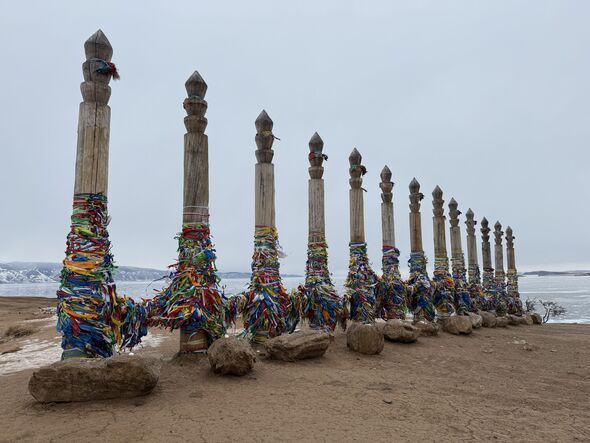
While Lake Baikal's remote location may seem inhospitable, the colossal water reserve supports a remarkable range of life, including 1,500-1,800 animal species, hundreds of plant species, and more than 320 bird species.
Endemic species found in the lake include the silver-grey Nerpa, the world's only exclusively freshwater seal. Rough Guides reports that the species, which is also known as the Baikal Seal, was believed to have become trapped here when the last Ice Age retreated.
Nerpa are now a protected species. To spot them, visiting Olkhon Island, the Svyatoy Nos Peninsula, and the remote northern shores of Lake Baikal is recommended.
Olkhon Island's landscape is an extraordinary mix of taiga, grassland, forests, and even a small desert. It is best explored on foot, bike, or horseback; along the way, there are dozens of archaeological monuments and herds of wild horses to watch out for.
While Lake Baikal is one of the clearest and oldest freshwater lakes in the world, its water is not typically drinkable without treatment. Natural contaminants such as bacteria and parasites pose a risk.
As for swimming, the water rarely climbs past 10C, even in summer.
That doesn't stop some people from dipping, though most stick to the slightly warmer, shallower areas like the Maloe More (Small Sea) during the summer months.
The lake's crystal-clear waters, sometimes allowing visibility of up to 40m, make it popular for hikers and water-sports lovers seeking to soak up the wonders of Baikal.
Generally speaking, the lake is frozen between January and May, making it ideal for snowmobiling, dogsledding, and skating, while the summer months will better suit hikers and water sports lovers.
Low rainfall and an average temperature of 18C in July make summer the busiest season around Lake Baikal, especially on Olkhon Island. This is when its waters are warm, sunsets are their most to-die-for, and the area is primed for walking, swimming, or general chilling in the Siberian sunshine.
Fewer crowds flock to Baikal in August, and the temperature remains calm in September, but these months are known for heavy rainfall. The weather takes a turn through October and November - rain and storms are frequent.